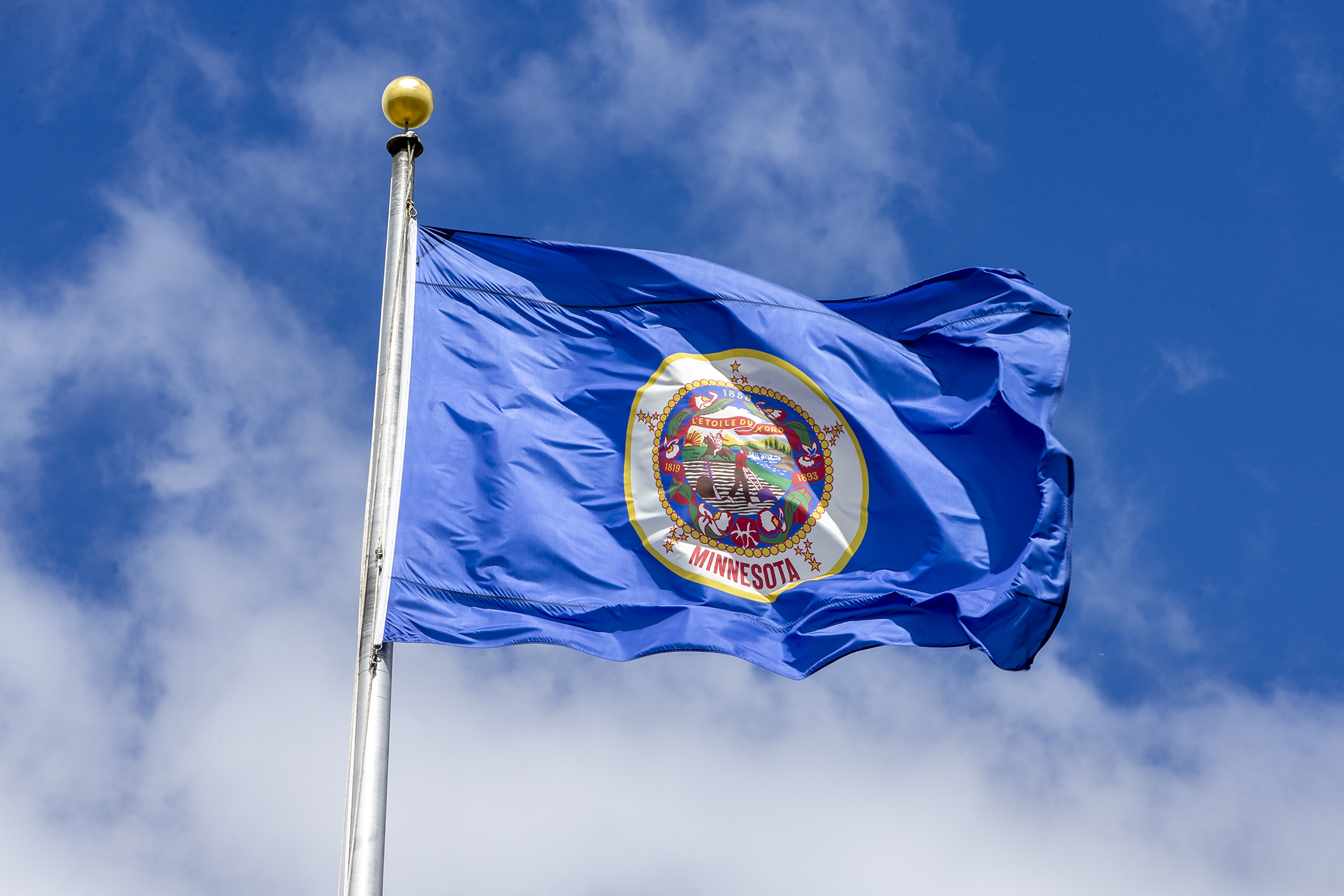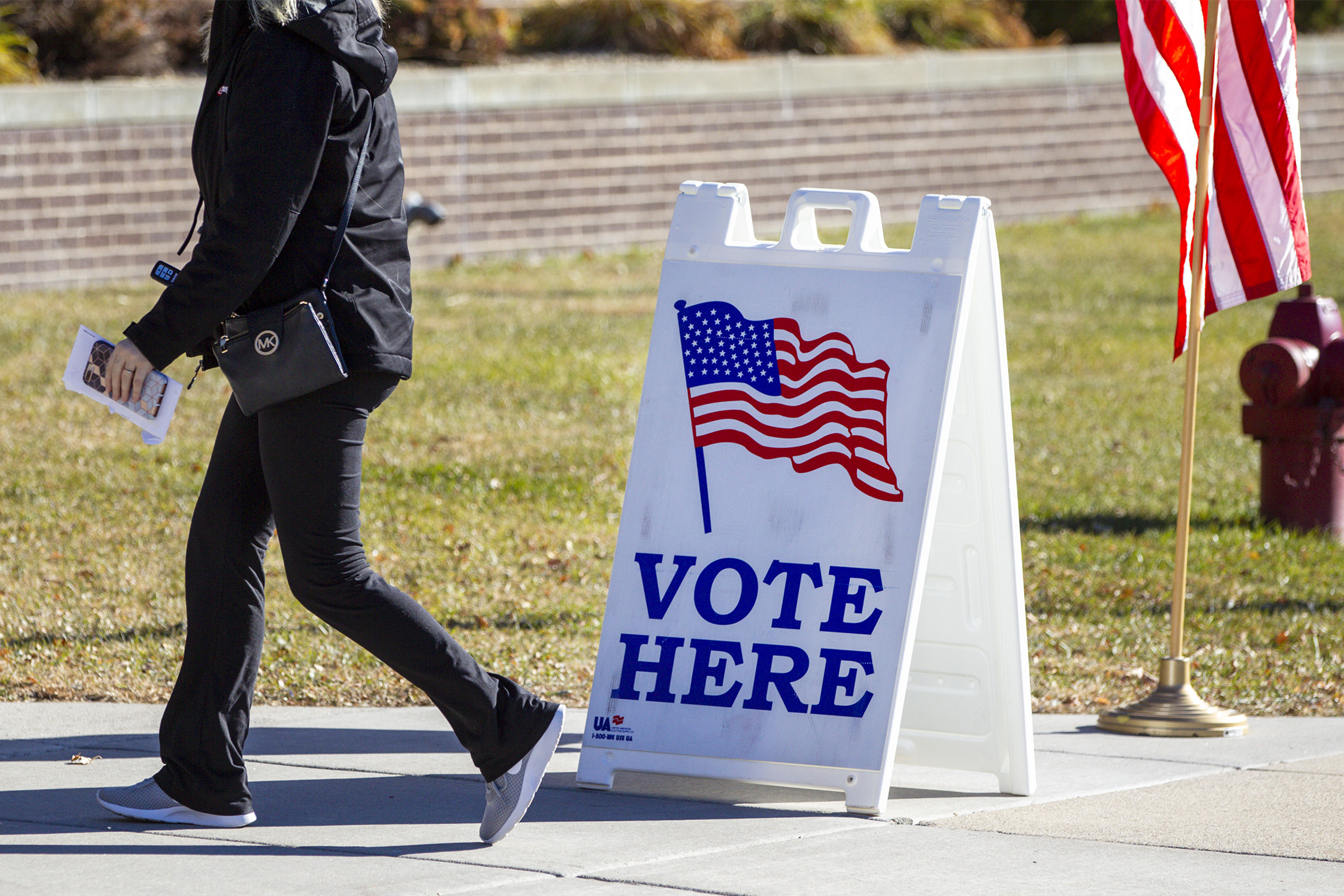Plethora of policy, supplemental spending packed into omnibus state government finance and elections bill

Additional funding. Election changes. Cybersecurity upgrades. A new state holiday. Retirement of the current state flag.
All are included in the omnibus state government finance and elections bill.
As amended, HF4293 checks in at almost $76.64 million in supplemental spending, all but $400,000 from the General Fund.
The House State Government Finance and Elections Committee received a walkthrough of the proposal Wednesday and took some testimony. More testimony is scheduled Thursday with committee action planned Friday.
“I look forward to a robust discussion,” said Rep. Michael Nelson (DFL-Brooklyn Park), the bill sponsor.
Funding adjustments
Minnesota IT Services would receive an additional $35.64 million this biennium, of which $12.4 million would support the procurement and adoption of cloud-based services, $10.25 million would target executive branch technology modernization, and $10.19 million would be for advanced cybersecurity tools and modern identity access management solutions.
Increased legislative spending totals $16.87 million, of which $14 million would be a onetime appropriation for replacement of the bill and administrative rules drafting system used by the Office of the Revisor of Statutes. The House would receive an additional $1.4 million for an operating adjustment and security.
Other proposed spending in fiscal year 2023 includes:
- $7.29 million for Minnesota Management & Budget to stabilize and sustain the state’s enterprise resource planning systems;
- $2.55 million to cover agency costs related to extending the workplace presumption of COVID-19 workers' compensation claims from Feb. 22, 2022 through Jan. 14, 2023;
- $2.34 million for an Office of the Attorney General operating increase;
- $2 million for block grants to public television stations;
- $1.5 million for the Administration Department to conduct a disparity study of designated target groups within purchasing categories;
- $1 million to cover agency costs related to workers' compensation claims incurred prior to March 4, 2021;
- $869,000 operating adjustment for the Legislative Coordinating Commission;
- $750,000 to help the Minnesota Historical Society reopen statewide historical sites; and
- $310,000 to the Office of the Secretary of State: $210,000 for a full-time chief information officer and $100,000 for the creation of a permanent civic engagement and youth outreach program.
[MORE: View the spreadsheet]
The bill would also appropriate funds from the federal Help America Vote Act, along with a $230,000 state match, to the Office of the Secretary of State to improve the administration and security of elections.
Elections
A handful of changes to the administration of absentee voting are called for in the bill.
For example, it would modify and expand certain requirements related to the use of absentee ballot drop boxes, including a minimum number of locations based on the number of registered voters in the jurisdiction; expand the number of days prior to an election a ballot can be dropped off; and ensure equitable access.
 (House Photography file photo)
(House Photography file photo)That flexibility would be really helpful for local election administrators in the days leading up to the election, said Nicole Freeman, government relations director for the secretary of state’s office.
Other election-related provisions include: a disclaimer would be required on certain independent expenditures to list the top three contributors responsible for funding the expenditure; a disclaimer exemption for certain online banner ads and electronic communications would be eliminated; the definition of “expressly advocating” would expand; and committees and private organizations mailing absentee ballot applications or sample ballots would need to include several notifications, including “THIS IS AN ABSENTEE BALLOT APPLICATION, NOT AN OFFICIAL BALLOT” and “THIS IS NOT AN OFFICIAL COMMUNICATION FROM A UNIT OF GOVERNMENT” on the outside of the mailing.
The prohibition on campaign contributions during a legislative session would expand to always prohibit certain contributions by a registered lobbyist, political committee, political fund, or other association in exchange for special access to a space where public officials are likely to gather, or to facilitate informal meetings or socialization with a public official during a legislative session.
New holiday, state flag
The bill would designate Juneteenth, June 19, as a state holiday. It marks the date in 1865 when federal troops arrived in Galveston, Texas to ensure the last enslaved people in the United States be set free, more than two years after President Lincoln signed the Emancipation Proclamation.
As for the blue flag now waving throughout the Land of 10,000 Lakes? It could be history in 13 months.
A 14-member State Emblems Redesign Commission is called for in the bill to “to develop, design, and recommend to the legislature and governor new designs for the official state flag and the official state seal no later than January 1, 2023.” The bill also states the 2023 Legislature “intends to hold necessary votes on adoption of the state emblems redesign commission's recommended designs during the 2023 regular session in an effort to ensure that a new official state seal and a new official state flag may each be adopted and become effective no later than May 11, 2023.”
New state office, task force, study
At a cost of $556,000, an Office of Enterprise Translations would be created within the Department of Administration to, in part, provide translation services for state agency written material and create language-specific landing web pages in Spanish, Hmong, and Somali with links to translated materials at state agency websites.
A Legislative Task Force on Aging is called for to examine financial security, housing, transportation, health care, employment, and social service needs of older Minnesotans with a goal of determining if a Department on Aging needs to be created in the executive branch.
“Long-term, Minnesota will see a significant shift in health care costs and social services,” said Rep. Ginny Klevorn (DFL-Plymouth) at a March 24 hearing. “Minnesota needs to start thinking about these issues and how it will address them before the issues become acute.”
Additionally, the Department of Administration would study unique issues facing small state government agencies and report to the Legislature by Feb. 1, 2023. Per the bill, “The study must examine how other states support their small agencies and provide recommendations on how to most effectively support small agencies in delivery of important functions of government.”
Among other provisions, the bill would:
- allow the governor to declare a peacetime emergency for a cyberattack on the state's information and telecommunications technology infrastructure, systems or services;
- require a city to allow an owner, authorized agent, or authorized occupant to install and maintain a managed natural landscape on private property;
- designate a statewide Americans with Disabilities Act and disability employment director;
- require state employees to receive annual training on statutes or policies related to the state's affirmative action policy, equal opportunity employment and digital accessibility standards;
- create requirements for mobile barber shops, including registration, services, location reporting, utilities, safety, inspection, infection control and compliance with local law;
- provide myriad modifications to cosmetology licensing;
- allow MN.IT to make grants to political subdivisions for cybersecurity purposes;
- ensure state statutes comply with the federal Equal Rights Amendment;
- expand public fund eligibility and investment authority for local governments;
- provide a number of changes and updates to the law governing the treatment of human remains or burial sites found on nonfederal public or private lands or waters;
- modify the use of sustainable energy sources in state-owned building projects to ensure compliance with the Sustainable Building 2030 standards;
- eliminate a required fee for an advisory opinion from the Department of Administration related to the Open Meeting Law;
- create a default authorization whereby state agencies can keep up to 5% of grant appropriations for administrative purposes;
- adopt a number of recommendations of the Advisory Task Force on State Employment and Retention of Employees with Disabilities;
- allow the Iron Range Resources and Rehabilitation Board to provide voluntary separation and retention incentive programs for employees, paid for with mineral taxes; and
- modify the military salary differential payment process and cancel certain debt incurred by service members for past overpayment of salary differential pay.
Sponsored by Sen. Mary Kiffmeyer (R-Big Lake), the Senate omnibus bill, SF3975, has just $10 million in proposed General Fund spending. It awaits action by the Senate Finance Committee.
***
What's in the bill?
The following are select bills incorporated in part or in whole into the omnibus state government finance and elections bill:
- HF284 (Freiberg)
- HF1815 (Klevorn)
- HF2017 (Reyer)
- HF2545 (Lee)
- HF2618 (Hansen)
- HF2747 (Klevorn)
- HF2847 (Moran)
- HF2857 (Nash)
- HF3084 (Acomb)
- HF3087 (Nelson, M.)
- HF3091 (Nelson, M.)
- HF3093 (Nelson, M.)
- HF3176 (Freiberg)
- HF3190 (Long)
- HF3666 (Greenman)
- HF3845 (Hanson)
- HF3910 (Richardson)
- HF3986 (Nelson, M.)
- HF4036 (Klevorn)
- HF4125 (Nelson, M.)
- HF4129 (Nelson, M.)
- HF4248 (Carlson)
- HF4293 (Nelson, M.)
- HF4310 (Nelson, M.)
- HF4345 (Albright)
- HF4451 (Ecklund)
- HF4524 (Masin)
- HF4568 (Bahner)
- HF4663 (Xiong, T.)
- HF4664 (Greenman)
Related Articles
Search Session Daily
Advanced Search OptionsPriority Dailies
Speaker Emerita Melissa Hortman, husband killed in attack
By HPIS Staff House Speaker Emerita Melissa Hortman (DFL-Brooklyn Park) and her husband, Mark, were fatally shot in their home early Saturday morning.
Gov. Tim Walz announced the news dur...
House Speaker Emerita Melissa Hortman (DFL-Brooklyn Park) and her husband, Mark, were fatally shot in their home early Saturday morning.
Gov. Tim Walz announced the news dur...
Lawmakers deliver budget bills to governor's desk in one-day special session
By Mike Cook About that talk of needing all 21 hours left in a legislative day to complete a special session?
House members were more than up to the challenge Monday. Beginning at 10 a.m...
About that talk of needing all 21 hours left in a legislative day to complete a special session?
House members were more than up to the challenge Monday. Beginning at 10 a.m...